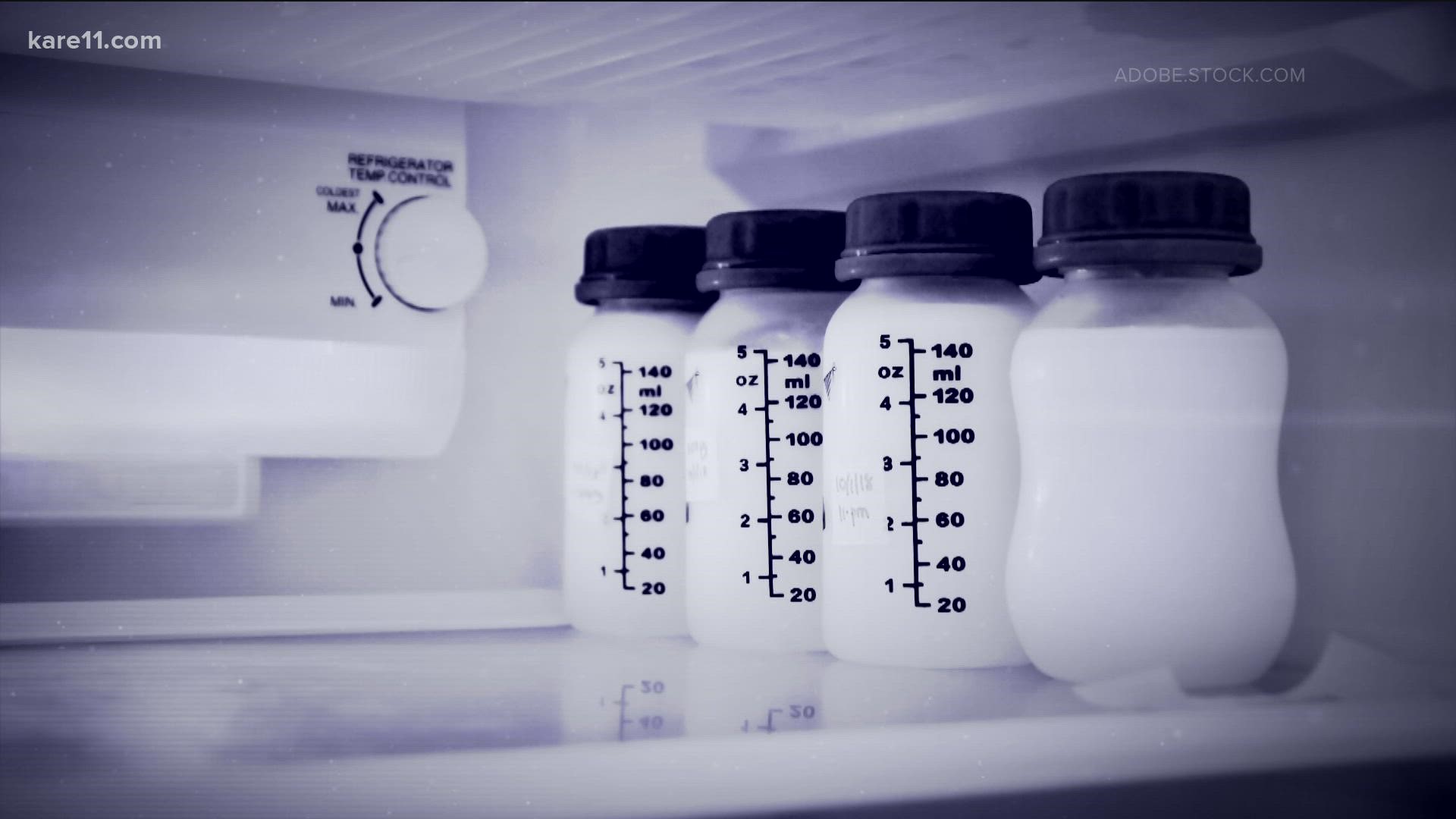MINNEAPOLIS — As we continue to navigate rights for families in the workplace, we've discussed leave policies and child care struggles, but now, we want to talk about a thing natural to a new mom's body, yet not quite worked into her working life.
Without a family leave policy as a nation, a working mom is often stuck with a pretty rotten choice when it's time to clock back in days or weeks after giving birth to a child.
Tina Sherman, with national group MomsRising, says it's about time we make breastfeeding work — at work.
"You know they are making that tough decision about whether to stop breastfeeding or return to the job site — not that they don't want to, they just don't have an option," Sherman said.
She makes that point to make another one about legislation that has now passed the House and is sitting in the Senate: an amendment to the Fair Labor Standards Act of 1938 that would expand access to breastfeeding accommodations in workplaces.
But why do we need an amendment?
"Unfortunately about 60% of pumping parents actually do not have the right to take a break or to pump in a non-bathroom private place," Sherman said.
These are millions of Americans who don't have a private place to go to pump breastmilk for their child.
"At MomsRising, we have heard from many of our members who say they have pumped in bathrooms, filthy storage closets, in their cars — all sorts of places no one would want to eat in, so why are we asking parents to be able to pump in those spaces?" Sherman said.
The bipartisan bill passed by the House would require employers with more than 25 staff members to provide time and space for nursing moms. If you are thinking, "Wait, didn't the Affordable Care Act of 2010 do that?" Yes and no.
Yes, it did some of it, but it didn't extend those rights to everyone. About 9 million working women were left out — like farm workers, teachers and others.
"We are really just talking about a place; a door that can lock, a chair, an outlet, a private place a parent can close the door and express milk," Sherman said.

